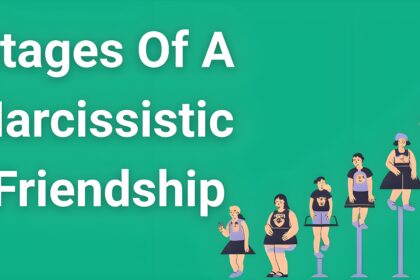When you’re involved with someone whose narcissist and sex drive creates a toxic dynamic in your relationship, you might find yourself questioning everything you thought you knew about intimacy and love. The connection between narcissistic personality traits and sexual behavior runs much deeper than most people realize, affecting not just the bedroom but the entire foundation of your relationship.
- The Psychology Behind Narcissist and Sex Drive
- The Four Pillars of Sexual Narcissism
- Shocking Truth #1: Sex Is Never About Pleasure for Them
- Shocking Truth #2: They’re Addicted to Sexual Novelty
- Shocking Truth #3: Their High Sex Drive Masks Deep Insecurity
- Shocking Truth #4: They Use Sex as Emotional Manipulation
- Shocking Truth #5: Their Sexual Behavior Predicts Emotional Abuse
- Shocking Truth #6: The Cycle Creates Powerful Trauma Bonds
- Shocking Truth #7: Recovery Requires Understanding, Not Willpower
- The Neuroscience of Sexual Narcissism
- Gender Differences in Sexual Narcissism
- Impact on Long-term Relationships
- Protection Strategies While You’re Still in the Relationship
- Creating Your Freedom Plan
- The Path to Healing
- Frequently Asked Questions
- Moving Forward: Your Life After Narcissistic Abuse
Understanding how a narcissist and sex drive intersect can be the key to recognizing manipulation, protecting your emotional well-being, and ultimately reclaiming your sense of self-worth. Recent research reveals disturbing patterns that explain why intimate relationships with narcissists feel so emotionally devastating yet strangely addictive.
The Psychology Behind Narcissist and Sex Drive
The relationship between narcissism and sexual behavior isn’t simply about having a high libido. Research conducted by Dr. Delroy Paulhus at the University of British Columbia found that narcissists demonstrate significantly higher sex drives than the general population, but this heightened sexuality serves a very specific psychological purpose.
For narcissists, sexual encounters function as a primary source of what psychologists call “narcissistic supply” – the constant validation and admiration they desperately need to maintain their fragile self-image. Unlike healthy individuals who view intimacy as a way to connect emotionally with their partner, narcissists approach sex as a performance where they’re the star and you’re simply the audience.
Dr. Paul Hokemeyer, a leading therapist specializing in narcissistic relationships, explains that when someone’s sexual behavior feels exploitative and lacks empathy for your wants and needs, there’s a high probability you’re dealing with someone whose primary purpose in intimate situations is validating their sexual prowess rather than creating genuine connection.
The Four Pillars of Sexual Narcissism
Understanding narcissist and sex drive requires recognizing the four core components that researchers have identified through the Sexual Narcissism Scale:
Sexual Exploitation
This involves the narcissist’s ability and willingness to manipulate you emotionally to gain sexual access. They might use guilt, emotional manipulation, or subtle coercion to get what they want when they want it. You might notice them withdrawing affection or giving you the silent treatment when you’re not “in the mood” for their advances.
Sexual Entitlement
Narcissists believe they have unrestricted access to your body and sexuality. They often ignore boundaries and consent, prioritizing their desires over your comfort and safety. This entitlement extends to expecting sex as a “payment” for gifts, dinner dates, or even basic kindness.
Low Sexual Empathy
Perhaps the most damaging aspect is their complete inability to consider your emotional or physical needs during intimate moments. They show little interest in your pleasure unless it serves to validate their performance. Your satisfaction matters only insofar as it feeds their ego.
Grandiose Sense of Sexual Skill
Despite often being poor lovers who prioritize their own gratification, narcissists maintain an inflated belief in their sexual abilities. They expect constant praise and validation for their performance, regardless of whether you actually enjoyed the experience.
Shocking Truth #1: Sex Is Never About Pleasure for Them
While it might appear that narcissists have an insatiable sexual appetite, research reveals that their drive isn’t motivated by physical pleasure or emotional connection. Instead, sex serves as a battlefield where they establish dominance and control over their partner.
Between 0.2 and 2 percent of the U.S. population has narcissistic personality disorder. For the narcissist, sex is about power, not pleasure, and life is about actions, not emotions and intimacy. This fundamental misunderstanding of sexuality explains why intimate relationships with narcissists feel hollow and unsatisfying despite potentially frequent sexual activity.
The narcissist’s sexual fantasies further reveal this power-focused approach. If their current partner does make an appearance in their world of sexual fantasy, they are nothing more than an accessory. The partner will appear faceless and nameless, as if they are only there for the narcissist’s blind sexual pleasure.
This explains why you might feel more like an object than a person during intimate moments. You’re not being loved or desired for who you are – you’re being used as a prop in their elaborate performance of sexual superiority.
Shocking Truth #2: They’re Addicted to Sexual Novelty
One of the most devastating realizations for partners of narcissists is understanding their addiction to sexual novelty. Narcissists constantly crave new experiences and partners not because their current relationship lacks anything, but because their brain chemistry literally requires escalating stimulation to achieve the same psychological high.
This novelty-seeking behavior stems from their inability to form genuine emotional bonds. Without the deep satisfaction that comes from authentic intimacy, they must constantly chase new sexual conquests to maintain their sense of superiority and desirability.
You might notice your narcissistic partner:
- Pushing for increasingly extreme sexual activities
- Showing interest in multiple partners or affairs
- Becoming bored with routine intimacy
- Comparing you unfavorably to past partners
- Using pornography compulsively
The painful truth is that no matter how perfectly you perform sexually, it will never be enough to satisfy their need for novelty and validation.
Shocking Truth #3: Their High Sex Drive Masks Deep Insecurity
Paradoxically, the narcissist’s apparent sexual confidence and high drive actually mask profound sexual insecurity. Research shows that narcissists are more likely to experience sexual dysfunction, including premature ejaculation and delayed ejaculatory response, despite their grandiose claims about their sexual prowess.
This insecurity drives much of their controlling behavior in the bedroom. They need constant reassurance that they’re the best lover you’ve ever had, not because they’re confident in their abilities, but because they’re terrified you might discover their inadequacies.
The tragic irony is that their desperate need for sexual validation prevents them from developing genuine sexual skills or emotional intimacy that would actually improve their performance and satisfaction.
Shocking Truth #4: They Use Sex as Emotional Manipulation
Understanding narcissist and sex drive reveals how they weaponize intimacy to control their partners’ emotions and behavior. Sex becomes a reward-and-punishment system where access to physical intimacy depends entirely on how well you’re feeding their ego.
Common manipulation tactics include:
- Withdrawing sex when you assert boundaries
- Using your sexual desires against you in arguments
- Making you feel guilty for not wanting sex when they do
- Comparing your sexual performance to others
- Using sex to “make up” after fights without addressing underlying issues
This weaponization of intimacy creates what psychologists call “trauma bonding” – a psychological attachment formed through cycles of abuse and intermittent reinforcement. The intense highs of sexual connection followed by emotional withdrawal create an addiction-like cycle that becomes increasingly difficult to break.
If you recognize these patterns in your relationship, understanding that professional help exists can be the first step toward healing. Resources like personalized analysis from certified specialists can help you understand exactly what you’re experiencing and develop strategies for protection and recovery.
Shocking Truth #5: Their Sexual Behavior Predicts Emotional Abuse
Recent research has established clear connections between sexual narcissism and other forms of abuse. Results showed that components of sexual narcissism were related to different strategies of sexual aggression, with sexual entitlement being associated with not providing the victim an opportunity to object and exploiting intoxication.
The same entitlement and lack of empathy that drives problematic sexual behavior inevitably extends to emotional and psychological abuse in other areas of the relationship. If you’re experiencing sexual coercion, emotional manipulation during intimacy, or feeling like your boundaries are consistently ignored, these behaviors often escalate to broader patterns of control and abuse.
Warning signs that sexual narcissism is part of a larger abuse pattern include:
- Escalating control over your activities and relationships
- Increasing isolation from friends and family
- Financial manipulation or control
- Gaslighting about your perceptions and memories
- Emotional volatility when their demands aren’t met
Understanding these connections can help you recognize that sexual manipulation is often just the beginning of a much larger pattern of abuse.
Shocking Truth #6: The Cycle Creates Powerful Trauma Bonds
The intermittent reinforcement created by narcissist and sex drive patterns triggers the same neurological pathways as addiction. The cycle of intense sexual connection followed by emotional withdrawal creates powerful trauma bonds that can feel stronger than healthy relationships.
This addiction-like attachment explains why leaving feels impossible despite knowing the relationship is unhealthy. Your brain literally craves the highs of sexual validation and intimacy, even when they’re followed by devastating lows of rejection and manipulation.
The trauma bonding process involves:
- Intense bonding during sexual encounters
- Cognitive dissonance when their behavior doesn’t match their words
- Isolation from other sources of validation and support
- Learned helplessness from repeated failed attempts to change them
- Fantasy bonding with who you thought they were rather than who they actually are
Breaking these trauma bonds requires understanding that willpower alone isn’t enough. The neurological changes created by this cycle require specific strategies and often professional support to overcome.
For those struggling to break free from these psychological chains, structured recovery approaches like the 30-day trauma bond recovery system can provide the daily support and brain-rewiring techniques necessary to reclaim your freedom. These science-based methods recognize that trauma bonds function like addiction and require specialized intervention rather than traditional relationship advice.
Shocking Truth #7: Recovery Requires Understanding, Not Willpower
Perhaps the most important truth about narcissist and sex drive is that simply knowing something is wrong isn’t enough to protect yourself or heal from the damage. The psychological manipulation and trauma bonding created by sexual narcissism require specific recovery strategies that address both the emotional and neurological impact of the abuse.
Traditional relationship advice like “just leave” or “set boundaries” fails because it doesn’t account for the complex psychological mechanisms at play. Recovery requires:
Understanding the manipulation tactics – Recognizing how sexual narcissism operates helps you see through the confusion and gaslighting that keeps you trapped.
Addressing trauma bonding – The addiction-like attachment created by intermittent reinforcement needs specific intervention strategies.
Rebuilding your sense of reality – Years of gaslighting about your perceptions and needs requires systematic reality reconstruction.
Developing safety strategies – Whether you’re still in the relationship or trying to leave, specific protection strategies can help you maintain your psychological safety.
Processing the grief – Mourning the relationship you thought you had while accepting the reality of what it actually was is essential for healing.
The Neuroscience of Sexual Narcissism
Recent neuroscientific research provides fascinating insights into how narcissist and sex drive affects brain chemistry. When narcissists engage in sexual behavior, their brains show increased activity in areas associated with reward-seeking and dominance, while areas responsible for empathy and emotional connection remain relatively inactive.
This neurological pattern explains why sexual encounters with narcissists can feel so intense yet emotionally empty. Their brains are literally wired to experience sex as a conquest rather than a connection, which is why no amount of love or sexual performance on your part will create the intimacy you’re seeking.
Understanding this brain science can be incredibly validating for survivors who blame themselves for not being “enough” to change their partner’s behavior. The truth is that the neurological differences in how narcissists process intimacy make genuine emotional connection nearly impossible, regardless of your efforts.
Gender Differences in Sexual Narcissism
While sexual narcissism occurs across all gender identities, research reveals interesting differences in how it manifests and is perceived. While sexually narcissistic men may be seen by their partners as aggressive or controlling, sexually narcissistic women may be considered empowered or modern (given that they are prioritizing their pleasure rather than their partner’s).
This perception difference can make it more difficult to recognize sexual narcissism in female partners, as their self-centered sexual behavior might be mistaken for healthy sexual confidence. Regardless of gender, however, the core patterns of exploitation, entitlement, low empathy, and grandiosity remain consistent.
Understanding these gender differences helps validate the experiences of all survivors while recognizing that sexual narcissism is fundamentally about power and control, not healthy sexual expression.
Impact on Long-term Relationships
Research tracking couples over five years reveals the devastating long-term impact of sexual narcissism on relationship satisfaction. Three of the four facets of sexual narcissism (sexual exploitation, sexual entitlement, and low sexual empathy) were negatively associated with both trajectories.
This means that relationships involving sexual narcissism don’t improve over time – they consistently worsen as the narcissist’s need for validation escalates and their partner becomes increasingly depleted by the one-sided dynamic.
The study found that sexual satisfaction mediated the effect of sexual narcissism on overall relationship satisfaction, highlighting how the dysfunction in the bedroom inevitably spreads to every aspect of the partnership.
Protection Strategies While You’re Still in the Relationship
If you’re currently in a relationship with someone showing narcissistic sexual behaviors but aren’t ready or able to leave, certain strategies can help protect your psychological well-being:
Document patterns – Keep a private record of sexual coercion, boundary violations, and manipulative behaviors. This helps combat gaslighting and maintains your connection to reality.
Maintain outside connections – Narcissists typically try to isolate their partners. Preserving relationships with friends, family, or support groups provides essential perspective and validation.
Protect your sexual autonomy – Remember that you always have the right to say no, regardless of their reaction. Your body belongs to you, not them.
Recognize manipulation tactics – Understanding how sexual narcissism operates makes you less susceptible to their emotional manipulation and guilt trips.
Preserve your sense of self – Engage in activities and relationships that remind you of your worth outside of their validation.
For those in situations where leaving isn’t immediately possible, specialized resources like survival guides for staying safe while planning your exit can provide crucial support and strategies.
Creating Your Freedom Plan
Breaking free from the cycle created by narcissist and sex drive requires careful planning and support. Whether you’re ready to leave now or still gathering strength, having a clear plan increases your chances of success and safety.
Essential components of your freedom plan include:
Safety assessment – Understanding the potential risks of leaving, including escalation of abuse or stalking behaviors.
Support network activation – Identifying trusted friends, family members, or professionals who can provide emotional and practical support.
Documentation preservation – Securing evidence of abuse and manipulation in a safe location your partner cannot access.
Financial independence – Developing economic resources that don’t depend on your partner’s cooperation or control.
Psychological preparation – Building the emotional resilience necessary to withstand their attempts to pull you back into the relationship.
Professional support – Connecting with therapists, abuse specialists, or support groups who understand narcissistic abuse dynamics.
Remember that leaving a narcissistic relationship is often the most dangerous time, as their need for control can escalate dramatically when they sense their power slipping away.
The Path to Healing
Recovery from sexual narcissism in relationships is a process that unfolds in stages. Understanding that healing isn’t linear can help you maintain hope during difficult moments and celebrate progress even when setbacks occur.
Initial recognition often brings a mix of relief and devastation as you finally have words for your experience while grieving the relationship you thought you had.
Safety planning involves both physical and emotional protection strategies as you prepare for life outside the toxic dynamic.
Trauma processing requires working through the complex emotions and beliefs created by repeated manipulation and gaslighting.
Identity reconstruction means rediscovering who you are outside of their definition of you and rebuilding your sense of self-worth.
Future preparation involves developing the skills and awareness necessary to recognize and avoid similar relationships in the future.
Throughout this process, remember that seeking professional help isn’t a sign of weakness – it’s a recognition that narcissistic abuse creates complex trauma that benefits from specialized intervention and support.
Frequently Asked Questions
Q: How can I tell if my partner’s high sex drive is narcissistic or just naturally high libido?
A: The key difference lies in empathy and reciprocity. Someone with a naturally high sex drive still cares about your pleasure and respects your boundaries. Sexual narcissists prioritize their gratification over your comfort and use sex as a tool for control rather than connection.
Q: Can a sexual narcissist change with therapy?
A: While personality change is possible, it requires the narcissist to acknowledge their behavior patterns and commit to extensive therapy. Unfortunately, the lack of empathy and self-awareness that defines narcissism makes them unlikely to seek help or engage genuinely in treatment.
Q: Why do I feel addicted to my narcissistic partner despite knowing they’re harmful?
A: The cycle of intense sexual connection followed by withdrawal creates trauma bonds that trigger the same brain chemistry as addiction. This neurological response makes leaving feel impossible despite logical understanding of the situation’s toxicity.
Q: Is it possible to have a healthy sexual relationship with a narcissist?
A: Genuine sexual health requires empathy, reciprocity, and emotional connection – qualities that narcissists fundamentally lack. While they might occasionally perform caring behaviors, these are typically manipulative tactics rather than authentic concern for your well-being.
Q: How long does it take to recover from sexual narcissistic abuse?
A: Recovery timelines vary based on the duration and severity of abuse, your support system, and whether you seek professional help. Many survivors report significant improvement within 6-12 months of leaving, though complete healing often takes longer.
Q: What should I do if my children are exposed to a sexually narcissistic parent?
A: Protecting children from exposure to narcissistic sexual dynamics requires careful documentation, professional guidance, and potentially legal intervention. Children’s safety must be the top priority, which may require difficult decisions about custody and visitation.
Moving Forward: Your Life After Narcissistic Abuse
Understanding the truth about narcissist and sex drive is often the first step toward reclaiming your life and relationships. While the journey from recognition to recovery can feel overwhelming, remember that thousands of survivors have successfully broken free from these toxic dynamics and gone on to build healthy, fulfilling relationships.
Your experience with sexual narcissism doesn’t define your worth or your future capacity for love. With proper support, understanding, and time, you can heal from the trauma, rebuild your sense of self, and develop the skills necessary to recognize and maintain healthy relationships.
The courage it takes to seek information like this article demonstrates your strength and commitment to your own well-being. Trust that instinct, protect yourself as you move forward, and remember that you deserve a relationship built on genuine love, respect, and mutual care – not manipulation and control.
Whether you’re still gathering information, planning your exit, or already on your healing journey, know that support exists and freedom is possible. Your story doesn’t end with narcissistic abuse – it’s just the beginning of a new chapter where you write the rules and choose partners who honor your worth rather than exploit your vulnerabilities.






